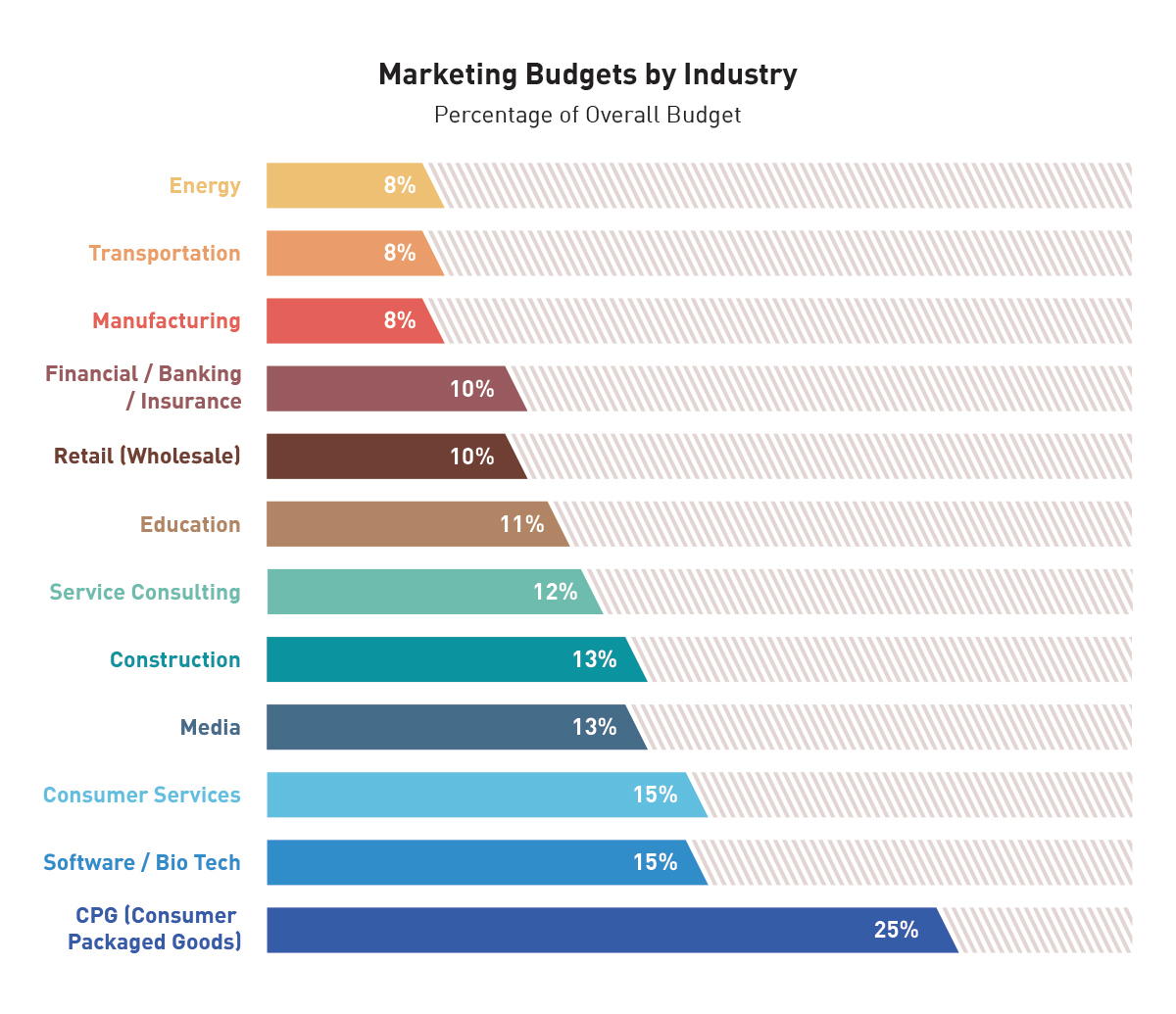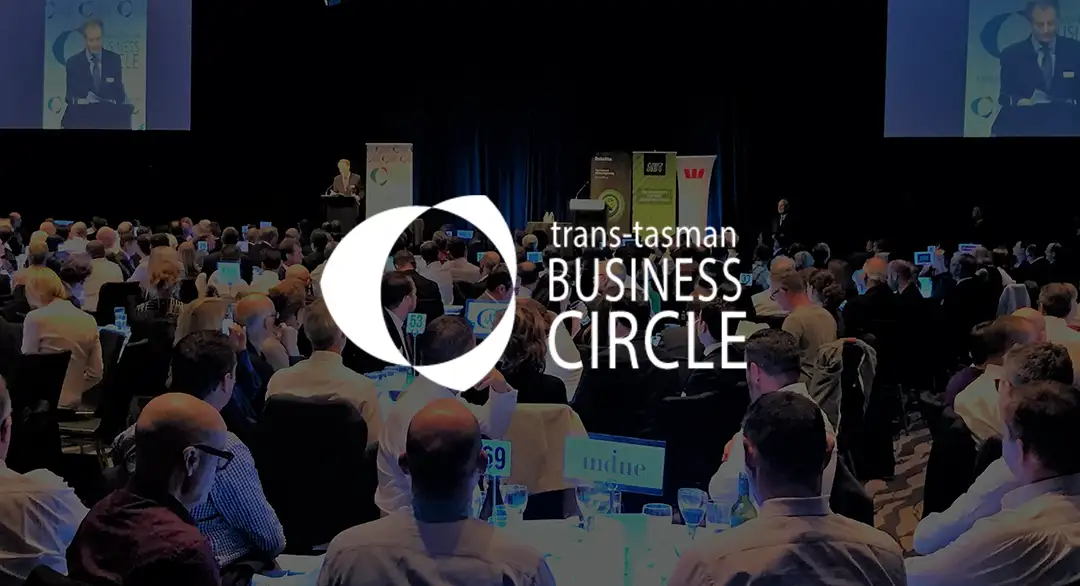
How to Set Your Digital Marketing Budget up to Succeed
Are you trying to understand your marketing budget for your industry or how your industry compares to other fields? If so, this article is for you.
People are exposed to more advertising messages than ever before. Traditional advertising efforts, with a few exceptions, are less effective than the past.
Marketing has been in a state of constant evolution ever since the advent of the internet. There’s been a constant barrage of new tech and new tools to target prospects. Just when you think you’ve got it figured out, things shift. Algorithms change. Privacy rules shift. What worked yesterday may not work today.
That’s why it’s critical to have an underlying marketing plan based on business goals in order to grow your business. Strategies can shift as things evolve, but meeting these goals is the only way to be successful.
Determine Your Business Goals
Before you can determine your marketing budget, you will need to have a solid understanding of your business goals. Your marketing strategy should be aligned with achieving these goals.
Common Business Goals
- Lead Generation
- Conversions
- Increased Sales
- Brand Awareness
- Grow Market Share
- Enter New Markets
Your goals may reflect some of these or others more relevant to your business.
Determine Your Digital Marketing Strategy
Aligning your marketing strategy directly with your business goals allows you to measure success. It’s also good business practice. Companies that closely align sales goals with marketing strategy report a 38 per cent higher conversion rate! And a 36 per cent customer retention rate.
Each goal may need a different strategy. Most companies use a mix of outbound marketing and inbound marketing strategies.
Outbound marketing comprises your advertising efforts to reach potential customers. This would include things like traditional advertising, email blasts, cold calls, and trade shows. Inbound marketing is focused on catching the attention of prospects either before they are looking to buy. Or when they are searching for what you have to sell. This includes strategies like paid search, content marketing, social media, blogs, and whitepapers.
Digital Strategies Marketers Are Using in 2019
Search: is still one of the most effective strategies. When someone is looking for what you have to sell, you need to be there. And it is better to be discovered organically than through PPC. As their is a higher trust level with the former.
Video: is at the top of nearly every digital marketer’s list this year. In fact, in a survey of marketing professionals, those that use video report faster revenue growth and the best ROI among marketing strategies.
Mobile: Optimized content is no longer optional. Worldwide, mobile internet use has now passed up desktop traffic. Two key factors have driven that growth. In the U.S., 95 per cent of adults owns a cell phone. Smartphone ownership is now at 77 per cent.
B2B: sellers are increasingly turning to Account-Based Marketing (ABM) for their marketing efforts. This is a concentrated effort on high-yield target accounts. Combined with business intelligence, digital marketing campaigns aimed at specific targets are effective.
It seems like every time you open your email; you are besieged by email marketing. While that may be true, Email Marketing remains an incredibly efficient way of reaching customers.
Creating branded content across various channels is a way to engage potential customers. By creating valuable information, you can demonstrate thought leadership and your expertise. 91 per cent of B2B marketers are now using Content Marketing to reach customers. 86 per cent of B2C marketers consider this a key core strategy for reaching business goals.
Chatbots can support your products 24/7 and never ask for a day off. They can provide instant answers – when backed by healthy information. And engage customer (and potential customers) directly into your sales funnel.
This is not meant to be an all-inclusive list of tactics. The best strategies may be something completely different or an integrated combination of the above.
Setting Your Marketing Budget
While companies often set their marketing budgets before they consider their goals. It works best when you do the first steps first. An underfunded marketing effort may fall short and waste money. It’s better to do fewer more focused projects well than spread your budget across many attempts.
A detailed marketing plan should be developed to put your marketing budget into action. One of the biggest obstacles that marketers face is the internal one in trying to get the money they need to be effective. A detailed marketing plan, aligned with business and sales goals, is essential to get budgets established.
On average, marketing budgets make up 11% of total company budgets annually, according to Deloitte’s CMO Survey. Some industries spend significantly more than that on their marketing budgets. The Consumer Package Goods (CPG) industry, for example, spends nearly a quarter of its overall budget on marketing efforts.
This list shows typical industry marketing spends by the percentage of the overall budget as analyzed by Deloitte.

You’re not marketing in a vacuum. It is also helpful to have an understanding of what your competitors are spending in the marketing space. While it’s also good to work smarter, you need to have the right budget to compete effectively.
Expect marketing budgets to grow over time. Social media marketing, inbound marketing, search marketing, banners, outbound video, inbound video, and email marketing are projected to grow at a 9 per cent CAGR (compound annual growth rate) by 2023.
Optimize, Rinse, And Repeat
What’s the most effective marketing you can do? The one that works! While that may be obvious, many businesses still don’t set up effective measurement devices to determine what works best.
Each marketing cycle should start with a thorough analysis of what is working. Drop the things that aren’t meeting your goals and do more of the things that are working.
It is critical to test everything, but equally important to measure everything.
Tracking your strategies against your goals is the only way to determine the ROI. At Digital Stand, for every client we work with, we set clear benchmarks at the outset of our relationship, so we can jointly measure success.

.jpeg?width=200&height=200&name=pexels-mikhail-nilov-6893349%20(1).jpeg)


















